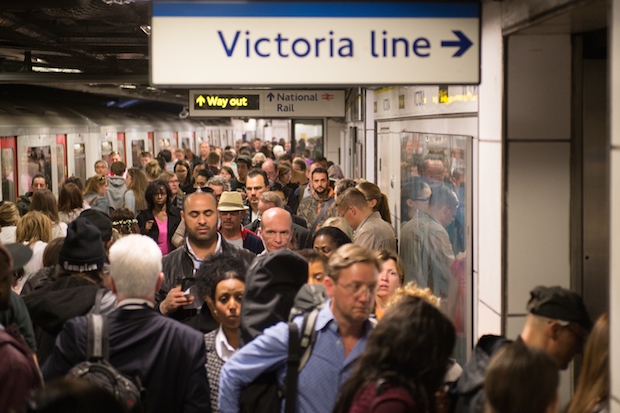Today, London feels on edge. For the second month in a row, militant transport unions will shut down the Underground system at 6:30pm, leaving Londoners to face seemingly endless queues for buses, inflated Uber prices and an army of occasional cyclists bearing down on them. The estimated cost of a 24-hour strike (this time, over the plans for a 24-hour Tube service) is some £50 million.
It’s time for the government to step in. Currently, the fire service, among others, is regarded as an ‘essential service’, which means a minimum service has to be provided during periods of industrial action while full-scale walkouts are illegal. It is time for the Tube – and potentially the railway network as a whole – to receive the same designation.
The Tube is essential. The hugely damaging effect on the capital caused by a handful of union barons with axes to grind is simply disproportionate to their complaints. These strikes cause disruption not just to people’s lives, but to the economy as a whole, with the effects of a London at half-speed felt right across the country.
Quite apart from the strike, the 24-hour Tube is a natural step forward. Mick Cash, head of the RMT, describes the Night Tube as a ‘vanity project.’ This is absurd. How does he think people working in central London’s bars and clubs, often on minimum wage, should get home at the weekend? For many it’s currently three buses and two hours.
How can it be right that tube drivers on £50,000-plus salaries with extraordinary conditions can refuse to take those people home at night, or that union bosses can use London’s economy and residents as pawns to extract ever more generous rewards? Londoners already pay excessively high fares by any global comparison and it’s time TfL refused once and for all to give in. Never has the phrase ‘give an inch, take a mile’ been more appropriate than to London’s transport unions.
An essential service designation wouldn’t be unreasonable, or unprecedented. The UN’s International Labour Organisation describes such a measure as ‘legitimate’. Transit workers in New York City and even resolutely liberal San Francisco are barred from striking.
With each successive strike, the unions are winning neither sympathy nor the argument. The world is changing and the transport unions look to be self-interested enemies of progress. Introducing measures to ensure that one of the world’s greatest cities isn’t strangled by their obstreperous tantrums might remind the unions that they are at their best when they’re constructive — and at their worst when their default response is a costly and disruptive refusal to get on board with the future.
Jonathan Isaby is Chief Executive of the TaxPayers’ Alliance






Comments